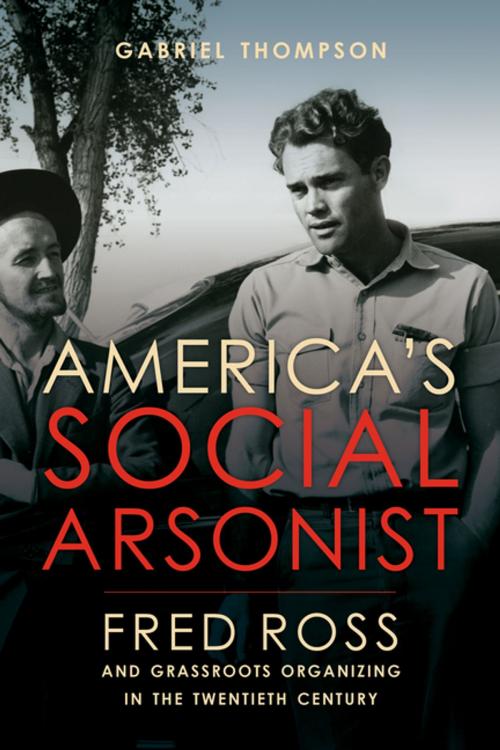America's Social Arsonist
Fred Ross and Grassroots Organizing in the Twentieth Century
Biography & Memoir, Political, Nonfiction, History, Americas, United States| Author: | Gabriel Thompson | ISBN: | 9780520964174 |
| Publisher: | University of California Press | Publication: | March 29, 2016 |
| Imprint: | University of California Press | Language: | English |
| Author: | Gabriel Thompson |
| ISBN: | 9780520964174 |
| Publisher: | University of California Press |
| Publication: | March 29, 2016 |
| Imprint: | University of California Press |
| Language: | English |
"A good organizer is a social arsonist who goes around setting people on fire."—Fred Ross
Raised by conservative parents who hoped he would “stay with his own kind,” Fred Ross instead became one of the most influential community organizers in American history. His activism began alongside Dust Bowl migrants, where he managed the same labor camp that inspired John Steinbeck’s The Grapes of Wrath. During World War II, Ross worked for the release of interned Japanese Americans, and after the war, he dedicated his life to building the political power of Latinos across California. Labor organizing in this country was forever changed when Ross knocked on the door of a young Cesar Chavez and encouraged him to become an organizer.
Until now there has been no biography of Fred Ross, a man who believed a good organizer was supposed to fade into the crowd as others stepped forward. In America’s Social Arsonist, Gabriel Thompson provides a full picture of this complicated and driven man, recovering a forgotten chapter of American history and providing vital lessons for organizers today.
"A good organizer is a social arsonist who goes around setting people on fire."—Fred Ross
Raised by conservative parents who hoped he would “stay with his own kind,” Fred Ross instead became one of the most influential community organizers in American history. His activism began alongside Dust Bowl migrants, where he managed the same labor camp that inspired John Steinbeck’s The Grapes of Wrath. During World War II, Ross worked for the release of interned Japanese Americans, and after the war, he dedicated his life to building the political power of Latinos across California. Labor organizing in this country was forever changed when Ross knocked on the door of a young Cesar Chavez and encouraged him to become an organizer.
Until now there has been no biography of Fred Ross, a man who believed a good organizer was supposed to fade into the crowd as others stepped forward. In America’s Social Arsonist, Gabriel Thompson provides a full picture of this complicated and driven man, recovering a forgotten chapter of American history and providing vital lessons for organizers today.















